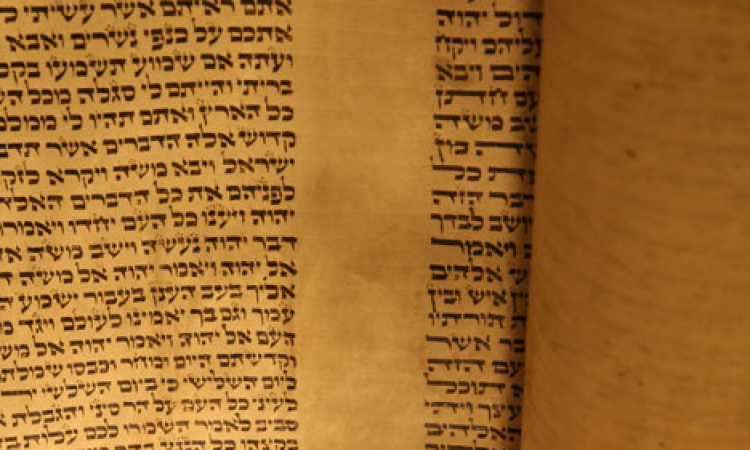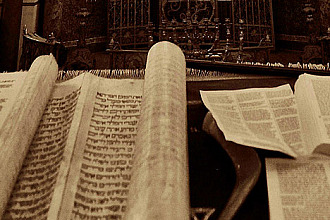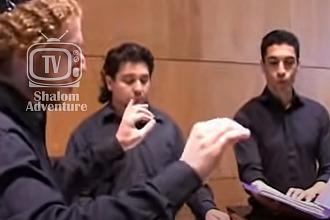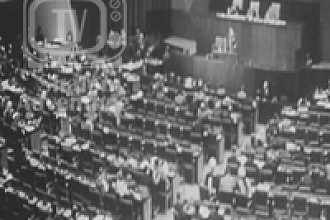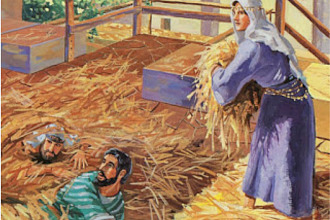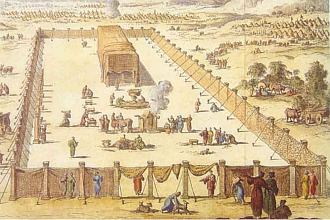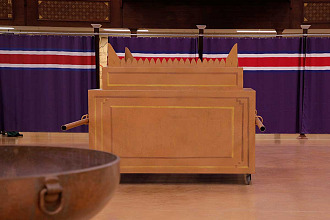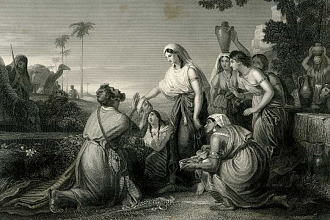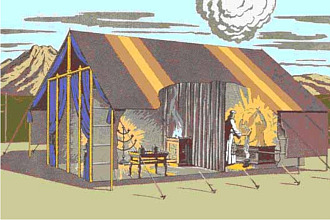Parasha for the Week: Naso Number 4:21 – 7:89
Haftara for the Week: Judges 13:2 - 25
Apostolic Writings: Mark 4:10 – 20
Overview:
The Torah assigns the exact Mishkan-related tasks to be performed by the families of Gershon, Kehat, and Merari, the sons of Levi.
A census reveals that over 8,000 men are ready for such service.
All those ritually impure are to be sent out of the encampment.
If a person, after having sworn in court to the contrary, confesses that he wrongfully retained his neighbor’s property, he is to pay an additional fifth of the base-price of the object and bring a guilt offering as atonement. If the claimant has already passed away without heirs, the payments are made to a cohen.
In certain circumstances, a husband who suspects that his wife has been unfaithful brings her to the Temple. A cohen prepares a drink of water mixed with dust from the Temple floor and a special ink that was used for inscribing G-d’s Name on a piece of parchment. If she is innocent, the potion does not harm her; rather it brings a blessing of children. If she is guilty, she suffers a supernatural death.
A Nazir is one who vows to dedicate himself to G-d for a specific period of time. He must abstain from all grape products, grow his hair and avoid contact with corpses. At the end of this period he shaves his head and brings special offerings.
The cohanim are commanded to bless the people.
The Mishkan is completed and dedicated on the first day of Nisan in the second year after the Exodus.
The prince of each tribe makes a communal gift to help transport the Mishkan, as well as donating identical individual gifts of gold, silver, animal and meal offerings.
“Naso Parasha’s Title”
The verb Naso is the first word of Numbers chapter 4, verse 22—the Hebrew says: nāśō e-rōšh bne g̱eršhôn, “Take [a census] of the sons of Gershon.” The verb Naso means to lift, carry or take: the translation here is “take” – Moses received the word of G-d saying, “take a census.” It is important to count the sons of Gershon and to write down their assignment. After this sentence, it is written in Hebrew, Gam Hem, which means “even them.” These words are related to the account of the census of the sons of Kehat who were counted first even though Kehat was younger that Gershon (Numbers 4:2). Verse 22 then continues: “by their ancestral households and by their families.” The preeminence of the sons of Kehat the younger does not mean to discriminate against Gershon. The implication of this verse is that the sons of Gershon form a house in Israel in their own right.
"Blessings In the Torah"
Parashat Naso introduces us to the special Priestly Blessing called Birkat Hacohanim. This blessing did not originate with Moses, but was pronounced by G-d himself: “The L-RD spoke to Moses, saying, ‘Speak to Aaron and his sons, saying, Thus you shall bless the people of Israel: you shall say to them, The L-RD bless you and keep you; the L-RD make His face to shine upon you and be gracious to you; the L-RD lift up His countenance upon you and give you peace.’” (Numbers 6:24-26). The following comments are made about this Priestly Blessing, Birkat Hacohanim, that G-d gave to the priests with which to bless Israel.
Blessings are very important in the Bible and became an important part of Judaism. Jews begin each day with blessings: thanking G-d for granting them the ability to wake up, to see, to move their limbs, etc. They also end each day with a blessing, before going to sleep.
The Torah is full of blessings. The Torah begins with G-d blessing Adam and Eve on the day they were created, and the Torah ends with Moshe speaking blessings over the Jewish people before his passing. The first letter of the Torah is the letter “Bet” (of the word Bereshit). Our sages say that the reason the Torah begins with the enlarged letter Bet is because Bet stands for the word Beracha, which means blessing.
Shabbat is the only day of the seven days of the week that G-d blessed (Genesis 2:3). Thus, every Friday night and Shabbat day Jews recite the Kiddush over the grape juice and bread, blessing G-d for giving us the holy day of Shabbat and its blessings (rest and food).
“A Three-Fold Blessing”
The number three is found in this parasha and frequently throughout the entire Tanach. First, the Tanach draws its name from its three sections: the Torah (the five books of Moses), the (Prophets) and the Ketubim (Writings). They were given to the Jewish people who are comprised of three divisions: the Cohanim, the Leviim and Israel. The Torah was given on the third month (Sivan) through Moshe who is the third among his siblings (Miriam, Aaron, and Moshe).
The Birkat Hacohanim is a “three-fold” blessing: that is why it is also called Bracha Hamshuleshet because it contains three parts.
The Birkat Hacohanim is in fact three blessings or three sentences of blessing. The Jewish tradition has linked this “three-fold” blessing to the three patriarchs: the first to Abraham, the second to Isaac, and the third to Jacob. Rabbi Zalmen Marozov says, “the priestly blessing contains fifteen Hebrew words. This number corresponds to the amount of years that Abraham, Isaac and Jacob lived together — Jacob was 15 when his grandfather Abraham passed away.”
Each blessing has two components and has a connection with the fullness of G-d presented in the Shema Israel.
1. "May Hashem bless you and keep you:" It is G-d the Creator who gives His blessings to everyone; from Him originate all blessings and He is the one who keeps His people—Shomer Israel— Psa. 121:4. Rabbi Hirsch affirms: “Since Yevarechecha (bless) is then complemented by Veyishmerecha (keep), we infer that this blessing refers also to possessions that require Shemira —from the verb lishmor— to keep or protect.
2. "May Hashem make His face shine upon you and be gracious unto you:" It is the Mashiach who revealed his face to us and made his face shine upon us when he came on the earth 2,000 years ago. “He was gracious” comes from the Hebrew word chen. This “grace” is a free gift from G-d for each one of us (“something free” is chinam in Hebrew). His grace is his forgiveness and his righteousness that are given “free of charge”—we acquire them by faith and not by works. He was so gracious to us that he gave his life for the forgiveness of our sins (Isaiah 53) without our paying anything (Isaiah 55:1).
3. "May Hashem lift up His countenance upon you and give you Shalom:” This expression “countenance upon you” means He will turn His face to you as it is written, “I will turn to you and make you fruitful and multiply you and will confirm my covenant with you” (Leviticus 26:9). In this blessing, we have both material and spiritual blessings. G-d wants to be close to His people to bless them, and to give them His Shalom. This Shalom, is not “peace” as in the absence of war; this Shalom is an “interior shalom,” a shalom that reigns in our heart: Shalom with G-d, Shalom with others, and Shalom with our conscience and ourselves. Only the Ruach Elohim can give this Shalom when He reigns on our heart. Just after promising the Ruach Elohim Yeshua said: “I have said these things to you, that in me you may have peace.” (John 16:33).
Haftarah: Judges 13:2 – 25
When no man in Israel was inclined and able help Israel—willing to be an instrument in the hand of G-d—that is when G-d would use a woman, like the matriarchs of Israel. Sarah, Rebecca and Rachel were all barren women who become pregnant through the miraculous working of the Ruach Hashem. “Now there was a certain man from Zorah, from a Danite clan, whose name was Manoah. His wife was barren and bore no children.” (Judges 13:2).
Verse 3 reveals a new miracle from G-d—His appearing as the Angel of G-d—as He had already appeared in Genesis 18, in Exodus 3, and in Joshua 5: “Then the angel of Hashem appeared to the woman” (Judges 13:3a). Many women in history have received the visit of an angel to announce the coming of a baby, the most famous of them is Myriam, the mother of Yeshua. The Angel now said to the wife of Manoah, “Behold now, you are barren and have not borne children, but you will conceive and bear a son.” (Judges 13:3b). Manoah and his wife were people of faith, and we should learn from them that if we want to have children who will follow G-d’s will, we must prepare ourselves long before their birth. “Now therefore be careful not to drink wine or strong drink, or eat any unclean thing.” (Judges 13:4). What modern advice! Today doctors say to any woman who is pregnant, “Do not drink alcohol,” but here in this text the advice was given long before the woman became pregnant. Alcohol is one of the most dangerous beverages for human beings. It destroys our nerve cells, weakens our health, and endangers our genes and heredity.
The Tanach continues: “For behold, you will conceive and bear a son. Let no razor come upon his head, for the boy will be a Nazirite to G-d from the womb.” (Judges 13:5a). This is a law that was clearly stated in the text of our parasha (Numbers 6:2). Then the Angel said Samson would be the first to fight the Philistines: “He will begin to deliver Israel from the hand of the Philistines.” (Judges 13:5b).
It seems that the Angel of G-d did not have an appearance we would consider typical of an angel, for to Manoah and his wife it was a “man of G-d,” maybe a prophet: “Then the woman came and told her husband saying, “A man of G-d came to me and his appearance was like the appearance of the angel of G-d, very awesome! But I did not ask him where he was from, nor did he tell me his name.” (Judges 13:6). Manoah was surprised and wanted to have confirmation of this revelation; he wanted to be sure to know how to prepare himself and his wife for the birth of a new baby. He prayed, “My L-rd, please let the man of G-d whom You have sent, come to us again and teach us what we will do for the boy to be born.” (Judges 13:8). The Angel answered Manoah’s prayer by coming again to his wife: “the angel of G-d came again to the woman as she was sitting in the field, but her husband Manoah was not with her.” (Judges 13:9). She ran to her husband, who came to meet the “man of G-d,” and all the instructions were repeated to both of them. The only point that the Angel omitted was the mention of her barrenness—Jewish tradition says this omission was in the interest of peace between husband and wife.
Manoah wanted to thank this “man of G-d,” so he asked him his name: “Then Manoah asked the Angel of Hashem, ‘What is your name, so that when your words come to pass we may honor you?’” (Judges 13:17). The Angel’s answer is very special: his name is “wonderful" (הוּא־פֶ֛לִאי (18 This expression pheliey is used 13 times in the Bible, translated as “wonders” and “miracle,” and most of the time is referring to G-d and His law. “Then Manoah realized that he was the Angel of Hashem.” (Judges 13:21), he realized that this was an apparition of G-d: “We will surely die, because we have seen G-d.” (Judges 13:22). The baby came and was called Samson.
Apostolic Writings: Mark 4:10 - 20
The text of our parasha is first about the Nazirite (Numbers 6:1-2); and second is about the completion of the dedication of the Sanctuary: (Numbers 7:1). These two topics are in parallel with our portion in the Besorah of Mark that gives Yeshua’s explanation of the parable of the Sower, and our Haftarah portion that introduces us to the birth of a Nazirite, the great hero, Samson.
The Sanctuary is an illustration or a parable of the Plan of Salvation—G-d’s provision to save humanity. This illustration can be paralleled with the parable of the Sower in which the farmer makes every effort to spread the seed on good ground, but unfortunately not all the seed produces good results—some receive it and some do not receive it.
The Sanctuary is G-d’s wonderful way to explain how salvation in Yeshua can be received, but since salvation is the result of a personal choice, some accept it while others refuse it.
The Haftarah is about the birth of the Nazir Samson: (Judges 13:5). In this Haftarah the father of Samson does not express much belief (Judges. 13:8) — maybe he believes, but he is skeptical, and needs a second vision of the angel to be convinced. Then the angel of the L-rd appears again to the mother and she runs to call her husband to be sure that he sees and hears the message of the angel for himself so that he will believe.
In the Besorah of Mark, chapter 4, verses 10 to 20 give Yeshua’s explanation to his disciples: “When Yeshua was alone, those around Him with the Twelve started asking Him about the parables. And He told them, ‘To you has been given the secret of the kingdom of G-d. But for those who are outside, everything is in parables” (Mark 4:10-11). Yeshua, as a faithful rabbi, used many parables to extend and explain his message and the purpose of his life on earth. His first message was: “‘Now is the fullness of time,’ He said, ‘and the kingdom of G-d is near!’” (Mark 1:15). Yeshua came to proclaim the kingdom of G-d, and the best way to do that was by telling parables. He said to his disciples: “To you has been given the secret of the kingdom of G-d” (Mark 4:11). This was his reply to the questions of the disciples who wanted to understand the parable: “When Yeshua was alone, those around Him with the Twelve started asking Him about the parables.” (Mark 4:10). These parables were not for the careless listener, or people from the “outside.” The parables were meant for people seeking God’s kingdom.
Yeshua, interpreting the parable of the Sower, says that the seed fell in different parts of the field and was received in various ways—some believed, some doubted, and some didn’t believe.
Yeshua said: “And others are those sown among the thorns: these are the ones who hear the word, but the cares of the world, and the lure of wealth, and the desire for other things come in and choke the word, and it yields nothing. ” (Mark 4:18-20). This is a good illustration of the story of Samson—he received the seed sown by his mother, but his heart was like the thorns, and the seed could not grow and flourish. As a result, he was attracted by a beautiful woman who was a member of the enemies of G-d’s people. We know the consequence of this choice: when his wife or girl friend, Delilah, had to make a choice, she chose her own people and betrayed Samson.
Yeshua said: “‘The secret of the kingdom of G-d has been given to you. But to those on the outside everything is said in parables’ … Then Yeshua said to them, ‘Don’t you understand this parable? How then will you understand any parable?’” (Mark 4:11, 13).
Yeshua will now give his explanation of the parable, but we see from the beginning that G-d’s word is given to everyone: all can receive it. But of the many people who heard the word of Yeshua, few accepted it so that it could bring forth fruit.
“The sower sows the word. These are the ones beside the road where the word is sown. Whenever they hear, satan comes quickly and takes away the word that has been sown in them.” (Mark 4:14-15). Some seeds drop onto the road where the soil is hard; these seeds cannot penetrate the soil—they remain on the surface and are stolen by the enemy. The devil is very busy around careless hearers, like the birds that fly around ready to pick up the grain and devour it. The hard soil represents the insensitive heart, like the hard heart of Herod, on whom the seed of the gospel lies on the surface of the heart but cannot penetrate in order to change it.
“These are the ones sown on rocky ground. When they hear the word, immediately they receive it with joy. And they have no root in themselves but last only a short while. When trouble or persecution comes because of the word, immediately they fall away.” (Mark 4:16-17). Without roots, the heart is only touched superficially and the seedling dies—a good example of this is the case of Simon the Magician in Acts 8:13, 18-24.
“And others are the ones sown among the thorns. They have heard the word; but the worries of the world, the seduction of wealth, and the desires for other things enter in and choke the word, and it becomes unfruitful.” (Mark 4:18-19). In thorny ground the seed cannot develop, it is smothered and overpowered by the weeds. This person has a divided heart as did Ananias and Sapphira in Acts 5:1-11.
“And those are the ones sown on the good soil. They hear the word and accept it and produce fruit, thirty, sixty, and a hundredfold.” (Mark 4:20). The seed penetrates deeply in this soil, it grows down to make strong roots and up to make beautiful flowers, then it is fertilized and the fruit it bears is for the glory of the sower. This is a man or woman who has a prepared heart, like Cornelius in Acts 10.
Yeshua then continued teaching, giving additional illustrations of the kingdom of G-d through other parables and comparisons.
Our lesson is that we can be a child of G-d at one moment, enthusiastically receiving the Word of G-d, but if we don’t persevere in a personal relationship with G-d through prayer and the meditation of His Word, we can still make bad choices that will result in failures in our spiritual life. Let us look to Yeshua the Messiah who can, by his grace, create within us a new heart where the seeds can find good ground and produce much good fruit. Our part today is to pray to Hashem for this soft heart that will be touched by G-d’s Word.

